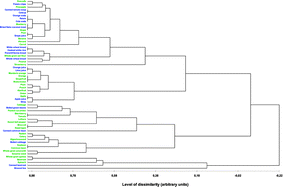Researchers from France have investigated how refining processes affect the lipotropic capacity of plant-based foods. Lipotropes – such as choline – are important compounds commonly found in vegetables, which prevent excess hepatic fat deposits by catalysing fat metabolism in the body. The lipotropic potential of bioactive phytochemicals from plant-based foods (PBF) has been much less studied and emphasised compared to other properties like antioxidant, anti-carcinogenic and anti-inflammatory potentials. Yet, fatty liver is common to several chronic pathologies like steatohepatitis, fibrosis and cirrhosis.
In this work, Anthony Fardet and co-workers aimed to estimate the effect of various technological processes on the lipotropic capacity and density of plant based foods. Results showed that overall, processing methods significantly reduced lipotropic capacity by approximately 20%, although fermentation was shown to be less drastic than thermal treatment. Furthermore, results indicated that fermentation and canning may actually increase the lipotropic density.
To find out more, read the full article for free by following the link below:
Thermal and refining processes, not fermentation, tend to reduce lipotropic capacity of plant-based foods
Anthony Fardet, Jean-Francois Martin and Jean-Michel Chardigny, Food Funct., 2011, DOI: 10.1039/c1fo10041f











